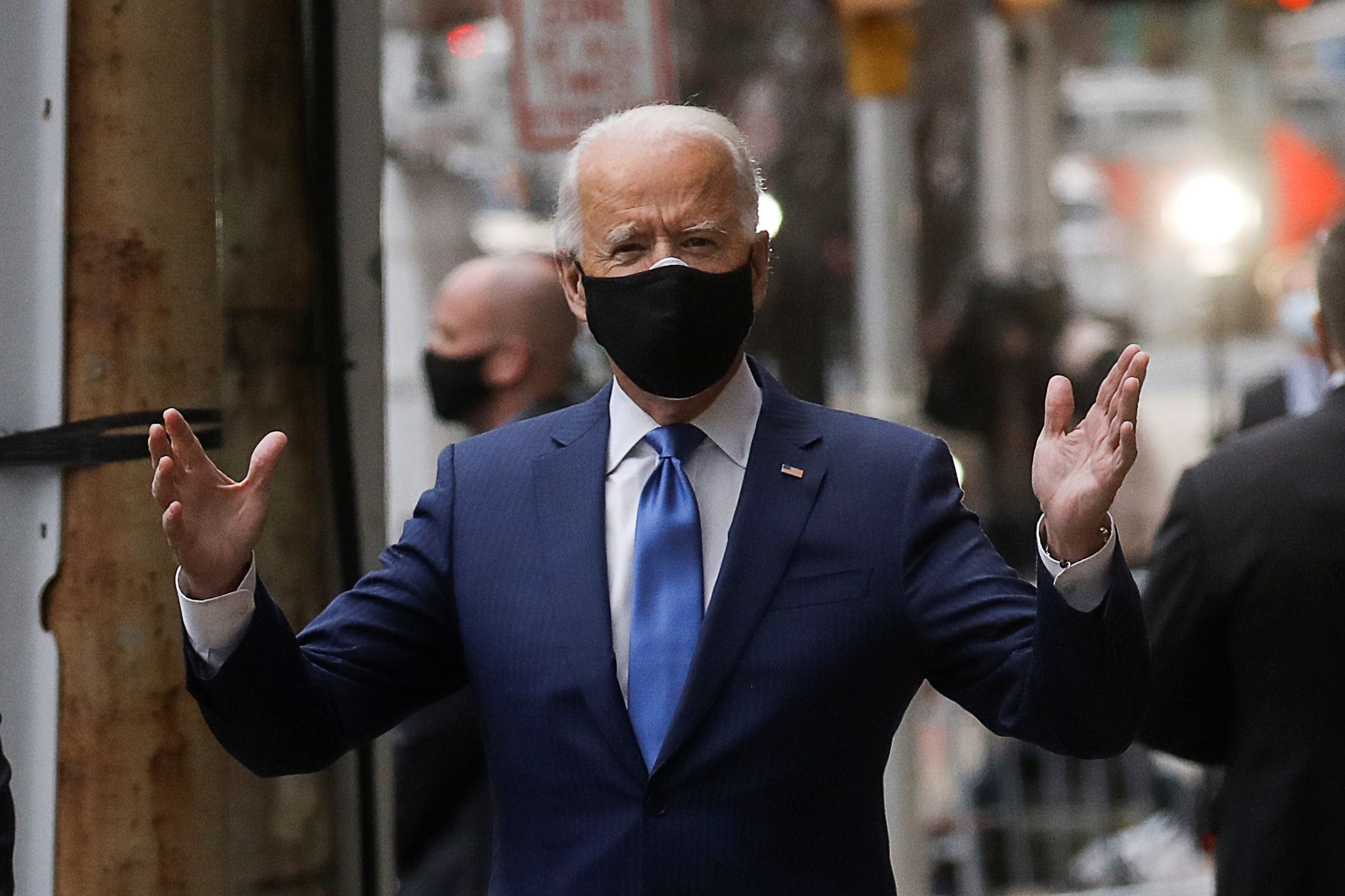New Pragmatism: France and the U.S. under Biden

French President Emmanuel Macron tried to establish a good personal relationship with Trump, hoping it would help decrease tensions in transatlantic relations. However, a chain of decisions not consulted with EU leaders by the Trump administration, especially in commercial, security, and climate matters, has strengthened the conviction of the French government that the Union needs to more autonomy vis-à-vis the U.S. Many parts of Biden’s electoral programme have stirred hopes in France that a better relationship with the U.S. is possible, but that has not diminished the determination in claiming that the substantial divergence of interests between the EU and U.S. go beyond the political configuration.
Renewal of Multilateralism
The French authorities hope that the return of the U.S. to global initiatives, as announced by Biden, will indeed take place, especially the Paris Climate Agreement. Biden’s programme foresees the allocation of $2 trillion in a plan for the ecological transformation of the American economy, an idea similar in many ways to the French recovery plan. Biden seems to agree with the conviction, very common in France, that ecology can serve as an instrument of pressure on China, as the trade rivalry with Europe and the U.S. will only intensify. Elements of this pressure could be a border carbon adjustment tax, collected on imports from countries with high emissions. In Europe, this idea has long been promoted by France, and that it is part of Biden’s programme has fomented the idea of a transatlantic carbon adjustment tax to balance the cost of the ecological transformation of American and European companies.
Of equal importance for France would be to see the U.S. return to full cooperation in the UN. The Trump administration announced the U.S. withdrawal from the WHO and quit UNESCO. That the U.S. under Biden will remain in the WHO is decided, but less certain is the prospect of the U.S. returning to the latter organisation. For France, a revival of U.S. membership of UNESCO would be symbolic of giving up the spectrum of Trump initiatives in the field of humanitarian diplomacy, perceived as disruptive towards the UN work. Trump administration actions aimed at the promotion of religious freedom and anti-abortion restrictions were considered a bypassing of the UN, which Trump and the Republicans accuse of being dependent on China, hostile towards Israel, and permissive when it comes to moral issues. The initiative of the Summit for Democracies, promoted by Biden, could grant Macron an opportunity to stress the need to fight populism and disinformation as well to promote the French projects of UN reform.
Global Security
As the U.S.-China rivalry intensifies, France hopes that its presence in Indo-Pacific would be an asset for the U.S. The French presence in this region has not only economic and political dimensions but also—in accordance to the country’s strategy since 2018—a military one. France and the U.S. are equally committed to the principle of freedom of navigation. France is also ready to invest in defence of its ultramarine territories and is selling more weapons to India and Australia, although is trying to avoid presenting itself as a military rival of China in Indo-Pacific.
France expects the new U.S. administration to reengage in the process of arms control. Extension of the New START treaty would get things going, but France was critical of the U.S. withdrawal from the INF treaty and hopes a new compromise will be possible in this area. The doctrine of the use of nuclear weapons also sparks divergence: France reserves itself the right to use them first in certain exceptional situations, while Biden announced during the campaign that he is willing to remove that idea from U.S. doctrine. France hopes also that a new discussion on arms control, given a new dynamic by the Biden administration, also provides an opportunity for rapprochement with the UK, with which France’s relations have deteriorated over Brexit.
The French authorities agree with Biden that Trump’s policy of “maximum pressure” on Iran was a mistake. They want a U.S. pledge to return to the JCPOA, as they are disturbed by the threat of U.S. sanctions against European companies that want to invest in Iran. But France will be OK with Biden’s gradual approach to lifting sanctions, being also interested—as the Americans are—in not provoking a reaction against Iran from regional rival Saudi Arabia. France and the U.S. will both claim that the best way to stabilise the region is to introduce a balance of power between the Sunni monarchies, Iran and Turkey.
Challenges for the Transatlantic Relationship
The future of EU-U.S. trade relations is viewed in France with less optimism than other areas. France fears that Biden could be, in this area, hardly more flexible than his predecessor. A return to an ambitious and holistic trade agreement, like the TTIP, seems improbable. The French government wants reciprocal abolishment of customs on industrial products, U.S. consent on the taxation of digital giants (GAFA), and increased protection of copyrights. France may agree with the U.S. about the need to be wary of Chinese technological expansion but at the same time wants the EU to negotiate with the U.S. common security regulations, and the U.S. to reject the strategy of economic blackmail used by Trump. France also expects both the U.S. and the EU to act in common and pressure China within the WTO, which needs first to be reformed. The Trump administration contributed to paralysis of the mechanism of dispute settlement in this organisation but the U.S. discontent with the WTO began under President Barack Obama. Many French analysts fear that reform of the WTO will not be a priority for Biden.
The result of the US presidential elections has not decreased the French determination in promoting the idea of European strategic autonomy—building up EU capability independent of the U.S. and NATO in military areas, but also to have its own trade policy to protect from the threat of American sanctions, and to have the ability for a separate strategy towards Russia and China. In this context, Macron criticised the latest position of the German defence minister, Annegret Kramp-Karrenbauer, as too enthusiastic towards the U.S. France often used the argument of Trump’s unpredictability to justify the necessity for strategic autonomy, but after the U.S. elections, it has shifted to highlighting instead a need for the equal distribution of duties among European allies with the U.S. engaged in Indo-Pacific. France fears that if Biden puts too much stress on the importance of NATO it can result in a too confrontational approach to Russia for French interests. France itself expects more engagement from the U.S. but in areas related to French security, like in the Sahel and a slowdown in the U.S. military withdrawal from Iraq, Afghanistan, and Somalia. The policy of the Biden administration towards Turkey is also unclear for France, which would be happy to see this country outside of NATO.
Conclusions and Prospects
Biden’s election is a positive breakthrough for France when it comes to global challenges. The return of the U.S. to the fight against climate change increases the pressure on the highly emissive economies of the U.S. and EU’s strategic rivals—China and Russia, which uses the export of fossil fuels as an instrument of political influence. Reducing the competitive advantage of high emissions through a transatlantic carbon adjustment tax could be a helpful tool that could be advantageous also for Poland.
The change of U.S. administration may not decrease French criticism of NATO, which does not see in the Alliance sufficient space to promote its interests as it is dominated by the U.S. and includes Turkey, France’s strategic rival in various parts of the world. France would prefer the EU become a point of reference for the U.S. in its relations with Europe, not only when it comes to trade affairs but also in security. At the same time, France will aim to develop bilateral military cooperation with the U.S. in areas vital to France’s interests (Sahel, Near East, Indo-Pacific).
The French government understands that with President Biden, Germany will become again a crucial U.S. partner in Europe. While in commercial and global affairs the possibility of a common Franco-German position towards the U.S. is very plausible, the security and defence matters remain in question at least till the Bundestag elections in autumn 2021. France hopes to cooperate with a new German government to decrease EU dependence on the U.S., as it is a long-term goal of French foreign policy. For Poland, such an evolution of the transatlantic relationship would be harmful, thus it is necessary to balance the Franco-German cooperation with an equally good Polish-German relationship.


